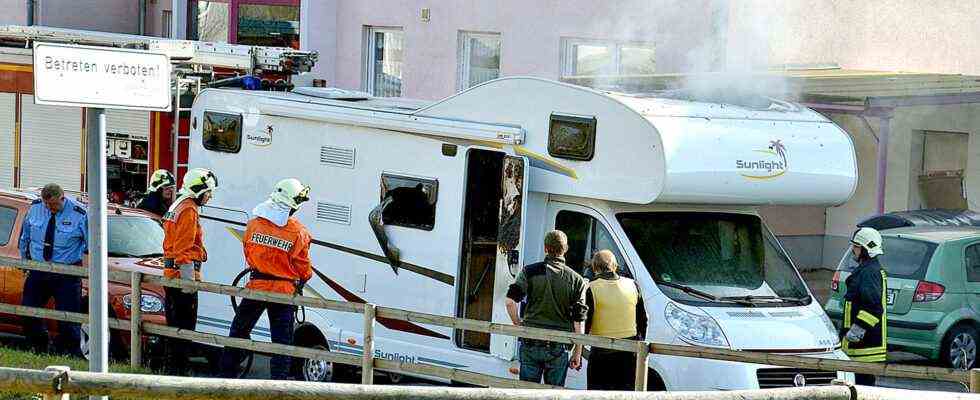Status: 03.11.2021 4:20 p.m.
On November 4, 2011, the right-wing extremist terrorist cell NSU was exposed. For the anniversary, Interior Minister Seehofer praised the work-up. Critics from politics and society see many deficiencies in the police and insist on complete clarification.
Ten years after the right-wing extremist terrorist group “National Socialist Underground” (NSU) was exposed, there are still demands to fully investigate the crimes and to reform police structures. The human rights organization Amnesty International in particular sees massive deficiencies in the authorities. “The way the police are set up today, it doesn’t really seem likely that a new failure like the one in the NSU complex can actually be prevented,” said Amnesty police expert Philipp Krüger.
“There is still a lot of need for action for the next federal government,” said Secretary General Markus Beeko. The organization called for independent investigative mechanisms with sufficient investigative skills as well as mandatory anti-racism training for police officers.
“Numerous files not accessible”
Shortly before the anniversary, the Federal Ministry of the Interior pointed out that the NSU acts had been dealt with in the federal and state levels. There were 13 committees of inquiry, “whose recommendations for action for the police, judiciary, intelligence services and the promotion of democracy have largely been implemented”. “This federal government has done everything in its power so that something like this does not happen again,” said Interior Minister Horst Seehofer (CSU) on Twitter. “We owe that to the victims and their families.”
Left chairwoman Susanne Hennig-Wellsow asked for further “clarification because there are still too many questions unanswered”. Her co-chair Janine Wissler pointed out that “numerous files are still inaccessible and classified as secret for decades”. “Enlightenment under lock and key is not enlightenment.”
The FDP member of the Bundestag Benjamin Strasser stated that lessons had only been partially drawn from the deeds. “We need both a reorganization of our federal security architecture and much stronger parliamentary control over intelligence services,” he said.
Further large gaps
From the perspective of the sociologist Matthias Quent, the processing of the NSU complex is far from over. There were still large gaps in the understanding of the procedure and the supportive milieu of the terror cell from Jena. This is due to the ongoing conspiratorial nature of the scene, but also to the blockade of state authorities. The other group of supporters of the NSU trio could apparently hardly be legally accountable
The Turkish Association of Berlin-Brandenburg (TBB) made it clear that the trust – especially of the migrant communities – in the investigative authorities was still deeply shaken. Even after ten years one could not speak of a complete explanation.
The President of the Office for the Protection of the Constitution, Thomas Haldenwang, had recently admitted unanswered questions. Accordingly, the role of a former employee of the Hessian State Office for the Protection of the Constitution is still unclear and also the motive for the NSU murder of a policewoman. In addition, it is therefore unclear whether the NSU perpetrators were really able to finance themselves through bank robberies or whether they had financial supporters.
Attempted murders and attacks
The right-wing extremist NSU cell murdered nine migrants and one policewoman between 2000 and 2007. Members Uwe Mundlos, Uwe Böhnhardt and Beate Zschäpe are also charged with 43 attempted murders, three bomb attacks and 15 robberies.
The connection between the acts only became known after NSU members Mundlos and Böhnhardt were found dead in a mobile home in Eisenach on November 4, 2011 and videos of confessional people appeared. Both had killed themselves after a failed bank robbery. Her accomplice Beate Zschäpe was sentenced to life imprisonment in 2018.

